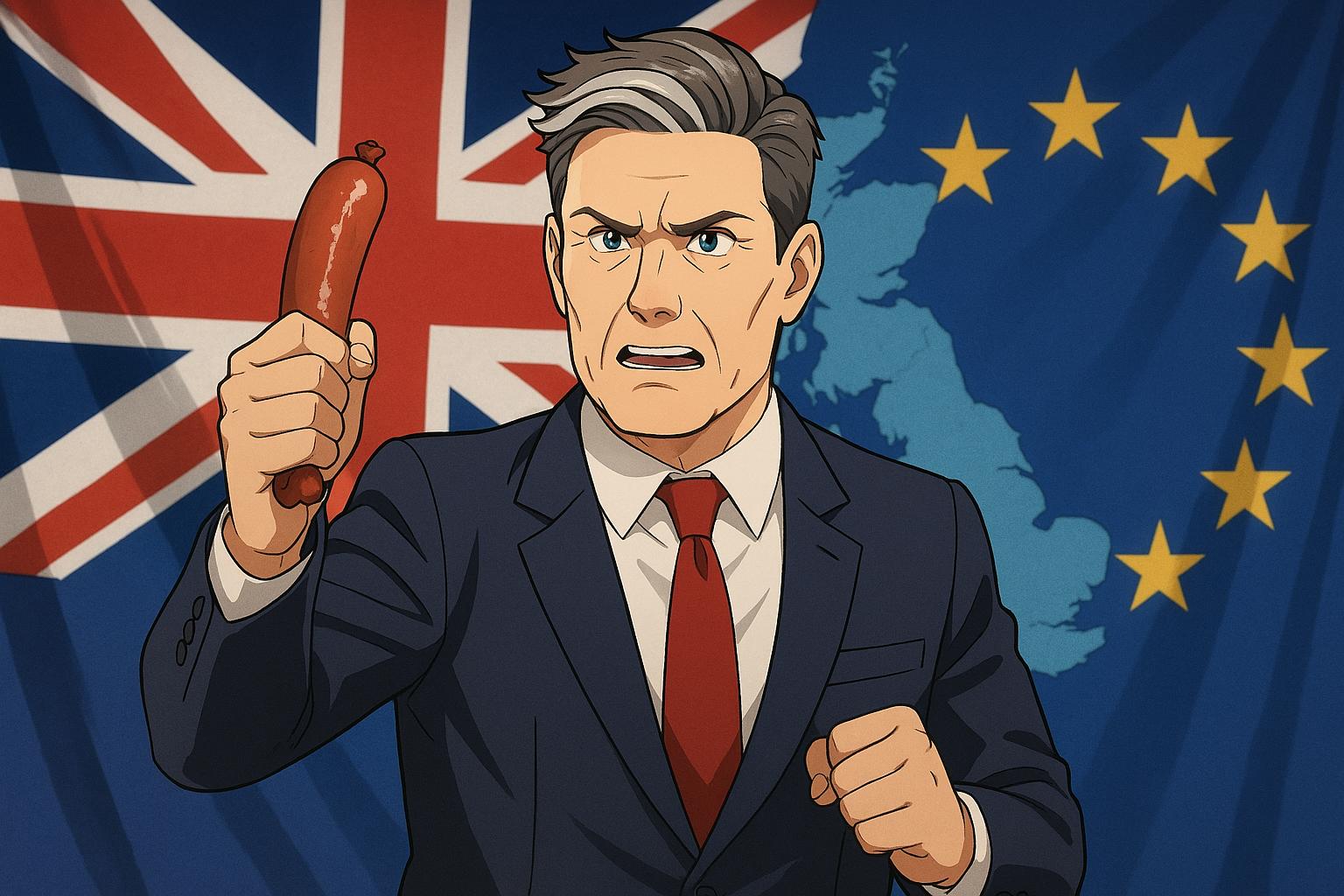Brexit negotiations are approaching a significant crossroads, with serious implications for Britain’s food industry, specifically in the vital sausage sector. As the new Labour government, led by Keir Starmer, embarks on its reset with Brussels, alarms are sounding among producers about potential shifts in food regulations that could undermine their products. Key figures from the opposition highlight that any forthcoming trading terms could force British manufacturers to bow to EU standards, particularly affecting processed meats like sausages, ham, and bacon.
The European Commission's recent move to enforce stricter regulations on nitrites and nitrates, commonly used in processed meats, has intensified these concerns. These additives, known to be linked to the formation of nitrosamines—some of which are carcinogenic—have prompted the EU to lower allowable limits. The new rules, laid out in Commission Regulation (EU) No. 2023/2108, will give food businesses at least two years to adjust, pressuring UK producers to comply or risk losing crucial access to EU markets.
Currently, the UK government maintains that it has no intention to align with these EU standards, which raises critical questions about the future of British food quality and trade. However, should Starmer choose to relinquish control over the nation’s food and agricultural policies to the EU, the landscape for British food producers, especially in the sausage-making industry, could drastically shift. At an upcoming pivotal summit, food standards are poised to take center stage in discussions between British officials and their EU counterparts.
Food standards have repeatedly emerged as contentious in Brexit discussions. Back in June 2021, Starmer chastised then-Prime Minister Boris Johnson, asserting that the government failed to understand the ramifications of the Northern Ireland Protocol, which imposed checks on goods moving from Great Britain to Northern Ireland. His comments then underscored a dire need for negotiations to avoid what has come to be known as the "sausage war," a term entwined with the ongoing trade disputes following Brexit.
Moving forward, Starmer appears to be positioning himself as a pragmatic figure willing to engage in dialogue with the EU, but this raises concerns about the implications of such a stance for British sovereignty. In October 2024, he met with European Commission President Ursula von der Leyen, ostensibly to foster cooperation without reverting to the pre-Brexit arrangements of free movement or single market membership. However, many are skeptical of this approach, questioning whether it may lead to compromises that diminish the quality standards British consumers expect.
As discussions about a new veterinary agreement and other cooperative measures continue, the future of access to EU markets for key British exports, including cherished sausages, hangs in the balance. The outcome of these negotiations will not merely affect the food industry's economics but will also resonate deeply with consumers who prioritize the integrity and standards of their food.
In a politically shifting landscape, the necessity for an assertive stance in maintaining British food standards and autonomy in trade negotiations has never been more urgent. As the summit draws near, there is an unwavering focus on how discussions surrounding food standards could reshape the industry for years to come.
Source: Noah Wire Services
